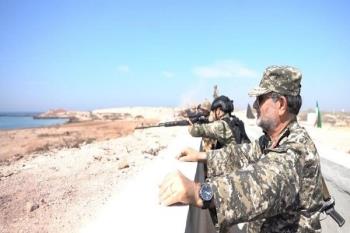Alwaght- The powerful and permanent presence of the military in political and social life of the Pakistani people has been subject to two categories of internal and external factors. At the internal level, historical, geographical, political, social and economic factors have joined together and have paved the way for militarism before and after the independence of Pakistan.
In addition, internal organizational weaknesses, leadership divergence, ideological differences, and conflicting and unconsolidated plans of the political forces have enabled the army generals to maintain its superiority and dominance. However, the military rulers make use of the public facilities and support to highlight the differences. They undermine the country's political forces and provoke the ethnic and local factors and other similar elements to prevent public protest. This strategy enables the military rulers to hold power; however, this political and social sabotage increase the long-term problems of the government. Pakistan's ruling generals, always seek cooperation of some political elites. This would provide them with a civil pretext for their ruling; however, the power remains concentrated in the hands of the military rulers. Ayub Khan, Muhammad Zia-ul-Haq and Parviz Musharraf widely adopted this strategy to enhance the legitimacy of their government. The ruling generals make use of other sources too. Successive military governments have created a large number of beneficiaries that support the military-dominated political system to safeguard their own interests. In addition, the military governments use retired military men in civil institutions to strengthen their positions and keep them under control. The government of President Pervez Musharraf, more than any other former military regimes, is known for using the military personnel in government and quasi-governmental institutions. Further, the military are granted trade and industrial licenses so that they may expand their role in business, trade and industry of Pakistan. This has increased the power of the military in the civil sectors and other diverse fields.
In addition, Bonapartism, in the sense that conflicts among two forces may give rise to a third force, has also made ground for the presence of the military in Pakistan's political scene. In a way that under the influence of disputes between the secular and religious parties, the military has seized the opportunity to make its presence felt in the politics. Basically, in authoritarian regimes in which the military holds the power, the government tends to maintain the security environment, and in these conditions, the military have more chance to enter the political scene and the functional requirements let them use their power. That is why in these countries the military and industrial development take main priority and lead to crisis in this country because the allocation of funds to military sectors makes economic development lag behind and in such a situation, popular discontent rises.
The reasons why Pakistan turns to militarism could be traced in factors such as Pakistan’s dispute over Kashmir and Afghanistan and its efforts to come into prominence in the region. Pakistan's quest for becoming a regional power was motivated by the Pakistani people and government’s efforts after independence to become a military-economic power at least compared to India. Accordingly, nuclear weapons race with India began in the 50’s, a race to strengthen the military and raise the country's military budget up to 40% which has been consolidated and continued since then.
The international situation changed in a way that made way for domination of the army over country's affairs. In other words, consolidation of military power in Pakistan is probably due to a lot of support it has always received from the Western powers. However, the Pakistani army has not had any comprehensive plan or strategy for administration of the country, and primarily seeks to maintain its domination over the country. There are several reasons why the ruling generals in Pakistan do not have a clear strategy for administration of the country which follows:
First: the senior military officers’ attitude towards the leaders and political parties is negative. In view of the military, the party leaders cause lack of internal coordination and constitute a threat to security of Pakistan. As a result, the military do not want to let the parties and political leaders enter the realm of their power. For this reason, only a handful of political leaders are active within the framework created by the ruling generals, and others have little hope to get involved in political affairs.
Second: the army generals equate most of their own legal and professional interests with the national ones. They consider themselves the best judges and a necessary precondition for the survival of the government. Therefore, any request for political participation and socio-economic justice by political and social opponents is seen a threat to internal stability and security of the country. The general image of dominance of the military on political arena has always been based on the idea that during the insurgencies and crises, the army has generally full control over the country, and it has been the one who instantly restores the discipline and the rule of law.
Besides, the army has taken the following measures to gain legitimacy for its government: Legal Proceedings: legal legitimation through Supreme Court and senior legal authorities; Political measures: to win the consent of some politicians to gain political legitimacy through wining the elections and forming a "democratically elected government". However, after winning the election, the military government rules out the bureaucrats from the positions of power and replace them with the military men.


























